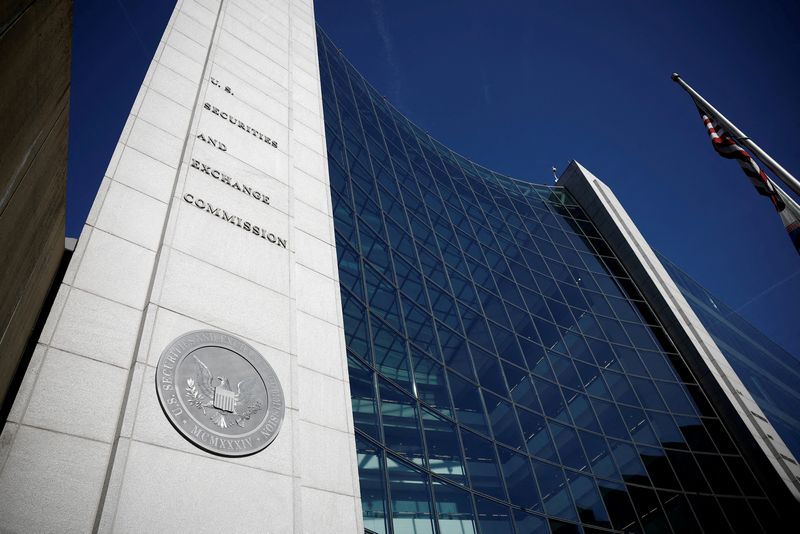NEW YORK (Reuters) – Wall Street’s top regulator hit the brakes on a key reform on Tuesday, delaying by a year the rollout of new rules designed to curb systemic risk in the $28.5 trillion U.S. Treasury market by channeling more trades through clearing houses.
The U.S. Securities and Exchange Commission said in a statement late on Tuesday it had extended by 12 months compliance dates for the clearing of eligible cash transactions and repo transactions.
The rules, which require some cash Treasury and repurchase or “repo” agreements to be centrally cleared, were originally supposed to be implemented in phases by June 2026, but several Wall Street trade associations last month asked the SEC to extend the process by at least one year for the cash and repo clearing deadlines.
“The U.S. Treasury market is a critical piece of the global financial system. New rules must be implemented properly, and any operational issues must be addressed,” said SEC Acting Chairman Mark Uyeda. “This one-year extension provides additional time to implement and validate operational changes,” he said in a statement.
Uyeda is leading the SEC alongside fellow Republican Hester Peirce and Democrat Caroline Crenshaw. They all voted in favor of the postponement. U.S. President Donald Trump’s nominee to lead the agency Paul Atkins has yet to be confirmed.
The Securities Industry and Financial Markets Association (SIFMA) said on Tuesday the delayed implementation was important to avoid market disruptions.
“Market participants have become increasingly concerned that the original implementation dates were overly aggressive and would add unnecessary risk to the nation’s and world’s most important asset market,” it said in a statement.
Reuters reported last year that bond market participants were considering a request for a timeline extension, as key details on how mandatory central clearing would work had not been yet defined and many feared the remaining two years might not be sufficient to transition.
The rules originally said clearing houses would have until March 2025 to comply with provisions on risk management, protection of customer assets, and access to clearance and settlement services.
Their members had until December 2025 to begin the central clearing of cash market Treasury transactions and until June 30, 2026, for repo transactions. The repo market is where banks and funds exchange short-term loans backed by Treasuries.
The SEC kept the March 2025 deadline for clearing agencies to implement required access and risk management changes as prescribed by the SEC clearing rules, but it extended to September 30 this year the deadline for clearing houses to enforce those requirements for clearing members.
Clearing houses act as an intermediary between buyers and sellers, but they require traders to deposit collateral, called margin, to cover potential losses on their positions.
The Fixed Income Clearing Corporation (FICC), currently the chief clearer of Treasuries, is working with futures exchange operator CME Group (NASDAQ: CME) to expand an existing cross-margining arrangement that will allow both registered brokers and their clients to offset their margin exposure across the cash and futures markets, a step that would improve capital efficiency and cut trading costs.
SIFMA has previously said that by delaying the enforcement of new FICC rules, the SEC would help preserve momentum on initiatives related to central clearing, such as the expansion of cross-margining. It had requested a one-year extension.




